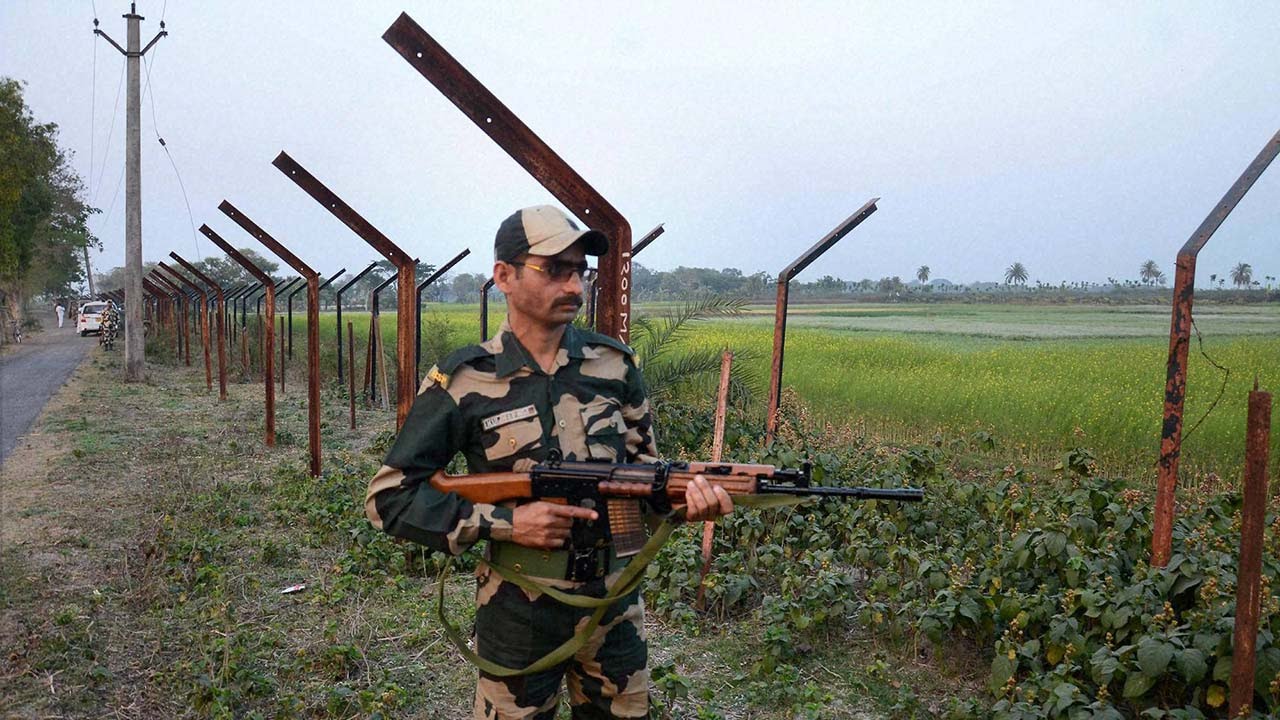
The Ministry of Home Affairs (MHA)’s 11 October, 2021, notification has set the jurisdiction of the Border Security Force (BSF) at a uniform limit of 50 km in almost all the states that share borders with Pakistan, Bangladesh and Myanmar.
This has been brought through adjustments to existing provisions which kept the BSF’s operational area at 50 km in states of Manipur, Mizoram, Tripura, Nagaland and Meghalaya, but limited only to 15 km in West Bengal, Punjab and Assam. Similarly, in Gujarat where the existing jurisdiction was 80 km, will now be reduced to 50 km.
The notification will enable the BSF to search, seize and arrest to prevent offences that fall under a variety of acts including the Criminal Procedure Code (CrPC), Passport (Entry into India) Act, 1920 and the Passport Act, 1967. The notification, however, does not give the BSF the power to investigate crimes. Suspects and accused persons will still have to be handed over to the local authorities.
By all means, the MHA’s move brings a partial uniformity in defining the area of BSF’s jurisdiction and avoids state to state differentials. The BSF’s current powers to arrest, search and seize under the NDPS Act, Arms Act, Customs Act and certain other laws, however, has not been changed, meaning its powers under these will continue to be only up to 15 km inside the border in Punjab, Assam and West Bengal, and will remain as far as 80 km in Gujarat. However, even with these limitations, this enhanced depth in the operational area will add to the effectiveness of the force that has been tasked with a range of responsibilities and is yet constricted with operating within illogically set geographical limits. The BSF had been demanding such a move for the past several years.
The Opposition’s criticism also does not consider the fact that even after the enhancement of its operational area, the BSF personnel will remain dependent on the state police for fulfilling much of their responsibilities. Devoid of power of investigation and the responsibility of charge-sheeting the arrested persons, the BSF’s capacity to deliver will remain inherently linked to the capacity enhancement of the state police forces.
Effective fight against transnational organised crime will be based on a cooperative and not competitive regime between the Central and state forces. The MHA’s notification, therefore, does not really strip the state police of their responsibilities but underlines the need to smoothen their working relationship with the Central forces. Extremism-affected states have been able to achieve this to a large extent.
It is yet another case of politics trying to needlessly cloud a move towards establishing the much-needed uniformity in the mandate of the security forces in India’s national security architecture. (Input by Bibhu Prasad Rautrya, served as a Deputy Director in the National Security Council Secretariat)
January 22, 2024
December 22, 2023
November 11, 2023
September 16, 2023
September 12, 2023
August 23, 2023
July 30, 2023
July 4, 2023
June 4, 2023
May 19, 2023
May 18, 2023
May 16, 2023
May 5, 2023
May 4, 2023
April 28, 2023
April 14, 2023
April 12, 2023
April 9, 2023
April 9, 2023
April 8, 2023
April 6, 2023
April 4, 2023
April 3, 2023
April 2, 2023
April 1, 2023
March 28, 2023
January 11, 2022
December 17, 2021
December 15, 2021
December 14, 2021
December 10, 2021
December 5, 2021
December 4, 2021
December 3, 2021
December 2, 2021
November 30, 2021
November 28, 2021
November 21, 2021
November 17, 2021
November 12, 2021
November 8, 2021
November 7, 2021
November 1, 2021
October 19, 2021
October 6, 2021
September 26, 2021
September 24, 2021
September 22, 2021
July 16, 2021
June 5, 2021
April 10, 2021

Kishore Kar is a West Bengal based politician. Business Associate of Kotak Securities Ltd. Founder of Lakshya Foundation (charitable trust).
Phone : (+91) 9830 878 455
Email : kishorekar.office@gmail.com
© 2024 All Rights Reserved by Kishore Kar | Powered by BLUESTACK

Leave a Reply